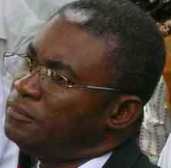Discussions by religious leaders over how conversion between faiths should be promoted must remember the rights of all individuals to select and follow the beliefs their conscience dictates, Seventh-day Adventist religious liberty leaders say.
The Vatican based Pontifical Council for Inter-religious Dialogue (PCID) and the Programme of Inter-Religious Relations & Dialogue within the World Council of Churches (WCC), launched a three-year joint study project aimed at developing a shared code of conduct on the controversial issue of religious conversion, according to a WCC statement. The project, "Inter-religious reflection on conversion: from controversy to a shared code of conduct," began with a meeting in Velletri, Rome, from May 12 to16, the WCC said. Some 30 participants representing different religious traditions and regions, met to assess "the current reality of religious conversion from an inter-religious point of view."
"The issue of religious conversion remains a controversial dimension in many inter-confessional and inter-religious relations," said Rev. Dr. Hans Ucko, head of the WCC's inter-religious relations office, in a statement released by the group. "We hope that at the end of this study project, we will be able to propose a code of conduct that will affirm that commitment to our faith never translates into denigration of the other," he added.
The Seventh-day Adventist Church is not a WCC member, but has sent observers to the organization's meetings. Dr. John Graz, director of public affairs and religious liberty for the church, says Adventists will closely follow the work of the WCC-Vatican panel "with interest."
Graz said, "We also hope that the concept of religious freedom won't be neutralized by a consensus between religious majorities. The key issue will be 'proselytism.' It won't be difficult to imagine that a common rejection of proselytism [would] be one of the first results of that commission."
The promotion of religious choice by individuals is an inherent part of international understanding. Article 18 of the Universal Declaration of Human Rights, passed by the United Nations in 1948, declares that "everyone has the right to freedom of thought, conscience and religion; this right includes freedom to change his religion or belief, and freedom, either alone or in community with others and in public or private, to manifest his religion or belief in teaching practice, worship and observance."
Those provisions--the freedom to change belief, as well as to "manifest" it in "teaching practice"-- could come under fire if proselytism restrictions result from the WCC-Vatican talks, says Dr. Jonathan Gallagher, who represents the Adventist world church at the United Nations.
"To deny the right to change one's religion is a violation of a fundamental human right," Gallagher told ANN. "A number of countries have passed laws to deny this right, or to severely limit it. Most recently, Algeria passed legislation that criminalizes anyone trying to convert a Muslim believer, with the penalty up to five years in prison. Similar laws have been passed in some states of India, in Iran and Mauritania, and are under consideration in Sri Lanka.
Gallagher adds, "At the United Nations we have presented numerous statements condemning the imposition of the death penalty for conversion, and have repeatedly urged the UN in its resolutions on religious intolerance to specifically reject such extreme human rights violations. The right to choose to change one's religion or belief must be safeguarded, and anti-conversion laws or policies must be opposed. They are an unwarranted intrusion into the sacred area of freedom of conscience."
The first WCC "Declaration on Religious Liberty" was adopted at his First Assembly in Amsterdam in 1948, has formulated: "The rights of religious freedom herein declared shall be recognized and observed for all persons without distinction as race, clor, sex, language, or religion, and without imposition of disabilities by virtue of legal provision of administrative acts."
An official document on "Common Witness and Proselytism" has been published in 1970 by a Joint Working Group between the Roman Catholic Church and the World Council of Churches, but offered to the Churches as a study document for their consideration, in order to arrive at a line of conduct where they live and witness.
In this 1970 Joint document "Religious Freedom" was not used in the wider biblical sense (e.g. Roman 8,21), but based on three main Religious Liberty declarations: the Document "Christian Witness, Proselytism and Religious Liberty in the Setting of the WCC" (Third WCC Assembly 1961), the "Declaration on Religious Freedom" of the Second Vatican Council 1965, and the "Universal Declaration on Human Rights" of the United Nations 1948.
According to Dr. Bert B. Beach, Adventist expert on interfaith relations and former director of Public Affairs and Religious Liberty Department at the Adventist World Church headquarters, the 1970 Joint declaration "is probably one of the best ever produced on the issue if Christian witness and proselytism."
The matter of conversion was also a subject of the informal conversations between the World Council of Churches and the Seventh-day Adventist Church between 1965 and 1969, with a very substantial agreement on Religious Liberty. Concerning proselytism, there was a large measure of mutual understanding between WCC and the Adventist Church. Both sides fully agreed that conversion can only come by uncoerced faith and sharing of Christian conviction is not only a right, but a duty. [Editors: Mark A. Kellner and Christian B. Schaeffler for ANN/APD]

